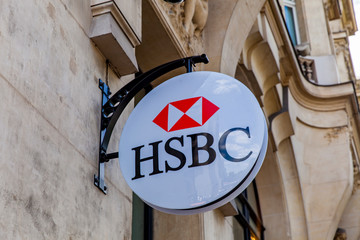HSBC Holdings announced on Tuesday, 2nd May that its quarterly profit had surpassed expectations, more than tripling due to the positive impact of increasing global interest rates. The interest rates have boosted the income of lenders and aided in payment of its first quarterly dividend since 2019.
HSBC's impressive performance stands out amidst the recent turbulence in the global banking sector. In March, the closure of Silicon Valley Bank and Signature Bank, driven by deposit flight from U.S. lenders, compelled the Federal Reserve to intervene with emergency measures. Furthermore, Credit Suisse required a rescue from UBS. Another development on Monday involved regulators seizing First Republic Bank and selling its assets to JPMorgan Chase & Co, marking the resolution of the largest U.S. bank failure since the 2008 financial crisis and attempting to put an end to persistent banking turmoil.
HSBC, the largest bank in Europe, reported a pre-tax profit of $12.9 billion for the first quarter ending in March, compared to $4.2 billion in the previous year.
These results surpassed the average estimate of $8.64 billion provided by 17 analysts surveyed by HSBC.
HSBC's headline profit received a significant boost due to the reversal of a $2 billion impairment that was initially set aside for the planned sale of its French business. This reversal reflects the possibility that the deal may not proceed as originally anticipated. HSBC had previously issued a warning last month, expressing concerns over regulatory capital issues for the buyer, which could potentially jeopardize the disposal of its France operations.
In addition, HSBC announced a delay in the timeline for finalizing the sale of its Canada business, which is an integral part of its strategy to reduce its presence in sluggish Western markets where it lacks sufficient scale. The originally projected completion of the $10 billion sale by the end of this year has now been revised, with the transaction expected to occur in the first quarter of 2024.
To enhance shareholder returns and address demands from its largest shareholder, Ping An Insurance Group Co of China, HSBC has been making efforts to expedite its shift towards Asian markets. This strategy aims to prevent the need for spinning off its Asian unit.
In response to shareholders' demands for increased dividend payouts, HSBC announced a quarterly dividend of $0.10 per share, marking its first dividend distribution since 2019. Additionally, the bank indicated the initiation of a new round of buybacks, with a potential value of up to $2 billion.
HSBC, like other British financial institutions, reported outflows of deposits for the quarter, excluding those obtained through the bailout of the failed U.S. lender Silicon Valley Bank's local arm. The trend of declining deposits has been observed among major European banks as consumers, facing a cost-of-living crisis, search for higher-yielding alternatives such as fixed-term deposits and investment funds.
Despite the substantial increase in profit, HSBC opted not to revise its key performance target of achieving a return on tangible equity of at least 12% starting from this year onwards. This decision contrasts with analysts' expectations, as they anticipated an upward revision of this important metric.






















